News
Trump returns to White House after COVID treatment

President Donald Trump returned to the White House Monday evening after being treated for COVID-19 for three days at the hospital, and removed his mask to pose for photos on a balcony before walking into the residence.
Trump didn’t speak to reporters at the White House and only said “thank you very much” to those gathered at Walter Reed National Military Medical Center before boarding the presidential helicopter. Back at the White House, he walked up the South Portico stairs to the balcony, where he removed his mask, flashed thumbs-up with both hands and saluted for several seconds.
He did not appear to put his mask back on before walking into the residence. The show of defiance toward both the virus and public health measures to combat its spread was in keeping with the president’s tone earlier when he announced he would leave the Bethesda, Maryland, hospital.
In a video released shortly afterward, Trump said of the virus: “Don’t let it dominate you.”
“I knew there’s danger to it. But I had to do it. I stood out front. I led. Nobody that’s a leader would not do what I did. I know there’s a risk. I know there’s a danger. But that’s O.K. And now I’m better. Maybe I’m immune, I don’t know,” he said.
“Get out there, be careful,” Trump added. “The vaccines are coming momentarily.”
The president has received medical care unavailable to most people, including three powerful medicines and an airlift to and from the hospital. The virus has infected more than 7.4 million Americans and has killed more than 210,000 since February, including 475 on Sunday, according to data compiled by Bloomberg.
The president’s aides hope to keep him at the White House residence and away from the Oval Office but are uncertain how long that will last, according to people familiar with the matter.“We’ll be back on the campaign trail soon!!!” Trump tweeted before leaving the hospital.
“Over the past 24 hours, the president has continued to improve. He’s met or exceeded all hospital discharge criteria,” White House physician Sean Conley said at a briefing after Trump’s announcement.
Trump “may not entirely be out of the woods” but the rest of his care can safely be performed at the White House, Conley said.
The race to determine who would be the next US president is well underway. Here’s a look at the developments along the way that lead to the election day on November 3, 2020.
The president received a fourth dose of an antiviral drug, Remdesivir, at Walter Reed before he was discharged and will get a fifth dose at the White House, his medical team said.
“He’s returning to a facility, the White House medical unit, that’s staffed 24-7,” Conley said, adding, “Every day a patient stays in the hospital unnecessarily is a risk to themselves.”
Conley said coronavirus patients could stop shedding the virus in as few as five days after diagnosis, and that Trump would be monitored to determine when he is no longer infectious. The White House plans for Trump to stay in the residence for a few days before returning to normal, one of the people familiar with the matter said.
The White House is creating additional room for Trump to work in the residence, and avoid heading into the Oval Office, by converting the Map Room and Diplomatic Reception Room into office space, according to a person familiar with the matter.
All aides who will see Trump over the next few days will be required to be in full personal protective equipment and maintain physical distance from the president, that person said, asking not to be identified discussing internal preparations.
Conley conceded that the course of Trump’s illness could still take a turn. “We all remain cautiously optimistic and on guard because we’re in a bit of uncharted territory when it comes to a patient that received the therapies he has so early in the course,” he said.
“We’re looking to this weekend,” Conley added. “If we can get through to Monday with him remaining the same or improving, better yet, then we will all take that final deep sigh of relief.”
Trump has received doses of two other medicines, including an experimental “antibody cocktail” and a steroid, dexamethasone, usually used to combat inflammation in people with more severe cases of Covid-19.
During the news conference, one of Trump’s doctors read off a list of the president’s vital signs as of this morning, including his temperature, blood pressure, respiratory rate, heart rate and blood-oxygen saturation level. His medical team has not previously released that data to the public.
But Conley declined to discuss the results of scans of Trump’s lungs, citing federal health privacy law.
Trump went to the hospital Friday evening, after announcing early that morning he’d tested positive for the virus. He was briefly administered supplemental oxygen at the White House before traveling to Walter Reed, Conley said Sunday.
The White House did not provide any update on Trump’s health in more than 24 hours between Sunday and Monday. Before he suddenly announced he would leave the hospital, he had not said anything about his condition on Twitter since shortly after 5 pm Sunday.
With less than a month until Election Day, Trump’s hospitalization has jolted the presidential campaign, forcing him to scrap rallies and other events as polls show him trailing Joe Biden nationally and in swing states. His campaign has launched “Operation MAGA,” referring to his Make America Great Again slogan, to flood the campaign trail with top surrogates like Vice President Mike Pence, Trump’s family and others.
Among the aides who were with the president Monday evening as he was preparing to leave Max Miller, the deputy campaign manager for presidential operations, and Bobby Peede, the White House director of advance. They arrived at the hospital just before 3pm, heading to presidential suite.
Peede had the coronavirus earlier this year, according to three people familiar with the matter.
Trump’s release comes after a weekend of mixed signals from Conley, who on Sunday disclosed for the first time that the president had been given supplemental oxygen and received a medication that’s typically used in more severe Covid-19 patients.
Asked why he didn’t disclose during Saturday’s briefing that Trump had received oxygen despite repeated questions about it, Conley said, “I was trying to reflect the upbeat attitude” of the team and the president.
Trump was diagnosed with the disease late Thursday, after a close aide, Hope Hicks, also tested positive for the virus.
The president first tested positive after he returned from a fundraiser at his New Jersey golf resort on Thursday, McEnany told reporters on Sunday evening. Trump made an appearance on Fox News on Thursday night before disclosing on Twitter shortly after midnight on Friday that he had tested positive.
New Jersey Governor Phil Murphy on Monday criticized Trump’s travel to the fundraiser at his Bedminster golf resort in the state, saying it ought to have been canceled. The president went to the event despite knowing Hicks had tested positive.
“I hope it’s a lesson that now we’ve all learned,” Murphy said on CBS’s “This Morning.”
Biden, speaking in Miami, wished Trump and the first lady well and said he hoped the president would take mask-wearing seriously.
“I was glad to see the president speaking and recording videos over the weekend,” Biden said. “Now that he’s busy tweeting campaign messages, I would ask him to do this: Listen to the scientists, support masks.”
News
Libya nabs three Nigerians over drug trafficking

Libya nabs three Nigerians over drug trafficking
The Samnu Police Department in southern Libya detained three Nigerians for drug trafficking.
According to a statement issued by Migrant Rescue Watch on X (previously Twitter) on Sunday, the suspects were apprehended carrying a quantity of hashish that officials believe was meant for sale.
The arrests were made during a targeted operation in the town of Samnu, Murzuq region, which is known for smuggling and human trafficking due to its proximity to Libya’s southern borders.
READ ALSO:
- EFCC arrests 36 suspected internet fraudsters
- Obama reacts as Trump freezes $2.3b Harvard University funding
- Peter of P-square testifies against brother in fraud case
This operation is part of a larger security effort to combat drug-related crimes and cross-border trafficking of migrants.
The suspects’ identities have not yet been made public. Authorities acknowledged that the case had been turned over to the public prosecutor for further investigation and judicial action.
The statement said. “Samnu Police Dept. arrested 3 #migrants of Nigerian nationality on charges of drug trafficking. The trio were found in possession of a quantity of hashish earmarked for sale. The case was referred to public prosecution.”
Libya nabs three Nigerians over drug trafficking
News
NIS expands contactless passport renewal to United States, others

NIS expands contactless passport renewal to United States, others
The Nigeria Immigration Service (NIS) has announced the expansion of its Contactless Biometric Passport Application System to several countries in the Americas.
In a recent statement by ACI AS Akinlabi, Service Public Relations Officer at NIS Headquarters in Abuja, confirmed that the service under Comptroller General Kemi Nandap is rolling out the next stage of implementation across Brazil, the United States, Mexico, and Jamaica this month.
The contactless system, which enables Nigerians living abroad to renew their travel document without physically visiting passport offices for biometric enrollment, went live in the United States on April 11. Mexico, Brazil and Jamaica are scheduled to gain access on April 14.
READ ALSO:
- I don’t have a second wife or family – Super Eagles striker Brown Ideye
- OAU student electrocuted while retrieving football from nearby compound
- Bomb blast: Senator Ndume visits victims at hospital, offers financial support
“This expansion represents our commitment to innovative and efficient service delivery to Nigerians anywhere in the world,” said ACI AS Akinlabi, Service Public Relations Officer at NIS Headquarters in Abuja.
The application system is currently available on the Google Play Store as “NIS Mobile” and allows passport renewal without in-person biometric enrollment. An iOS version for Apple devices is under development and will be released soon, alongside an enhanced version of the Android app to improve user experience and accessibility.
The NIS further confirmed that the Contactless Passport App is now operational in Canada, the USA, Mexico, Jamaica, Brazil, Europe, and Asia. Australia and Nigeria itself remain pending, with implementation dates to be announced in the future.
NIS expands contactless passport renewal to United States, others
News
Tariff: NACCIMA warns against economic instability, job losses
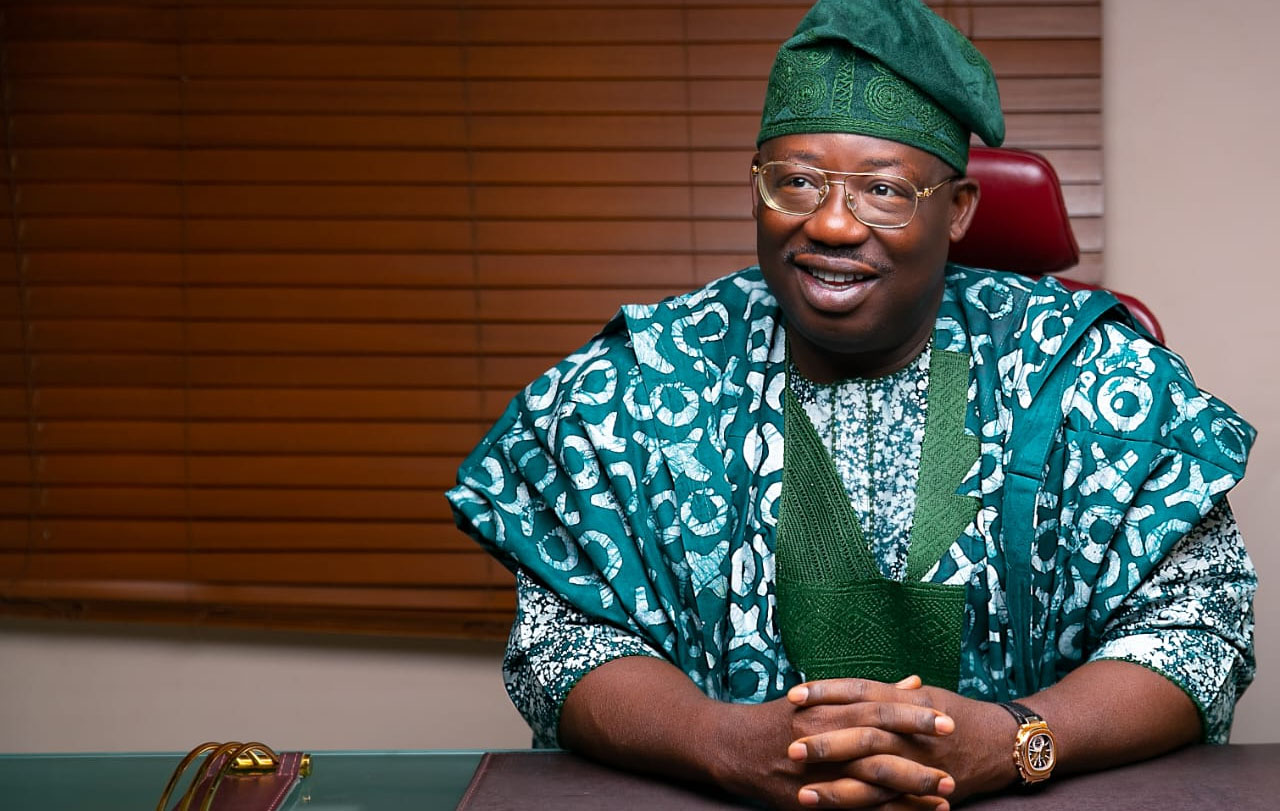
Tariff: NACCIMA warns against economic instability, job losses
The Nigerian Association of Chambers of Commerce, Industry, Mines, and Agriculture (NACCIMA) has expressed fear that unless the Federal Government takes deliberate steps to increase Nigeria’s non-export earnings, the current global tariff war may lead to job losses, low foreign exchange inflow, and economic instability.
This was the position of the President of NACCIMA, Dele Oye, as the chairman at the Vanguard Economic Discourse 2025 with the theme, “Nigeria’s Economic Outlook 2025: Hardship and Pathways to Sustainable Recovery”, held last week in Lagos.
Among other things, Oye who is also the Chairman of the Organised Private Sector of Nigeria (OPSN), emphasized the need for a viable and affordable homegrown democracy.
His words: “In this pivotal moment, we must recognize and confront the significant challenges before us—challenges that have been magnified by the advent of America’s “America First” policy.
READ ALSO:
- Portable arrested over alleged defamation against Osupa
- Varsity strike looms as NASU alleges secret ASUU-FG deal on allowance
- Despite trade spat with US, China exports rises 12.4%
“This paradigm shift in global trade, driven by protectionism and tariffs, presents a unique and formidable array of obstacles for developing nations such as ours.
“The world we once knew, one characterized by cooperative, rules-based trading systems under the World Trade Organization, has given way to an environment fraught with uncertainty. This transformation not only disrupts global markets and supply chains but poses an acute threat to our competitive standing in international trade.
“The recent implementation of a 14% tariff on Nigerian exports to the United States directly jeopardizes what has historically been a critical market for our key goods, including crude oil, liquefied natural gas, and agricultural products. “The ripple effects of reduced demand could precipitate job losses, economic instability, and a decline in vital foreign exchange inflows, particularly for our non-oil sectors”.
“Indeed, the ramifications of current U.S. policies go beyond tariffs. We are witnessing a significant decrease in funding for initiatives that empower Africa’s burgeoning start-ups. The $51 million cut from the United States Development Fund, which affects countries like Nigeria and Kenya, exemplifies the broader challenges we face. The grants previously allotted to our SMEs are critical for nurturing innovation and entrepreneurship within our local economies”.
In the face of these challenges, Oye said Nigeria must act decisively and strategically to reshape its economic destiny where adversity can give rise to opportunity.
Tariff: NACCIMA warns against economic instability, job losses
-
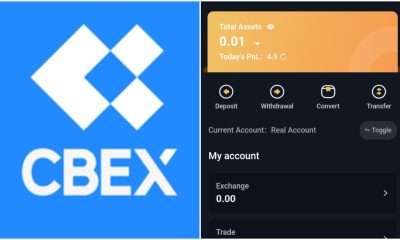
 Business1 day ago
Business1 day ago5 facts about trending digital trading platform, CBEX
-
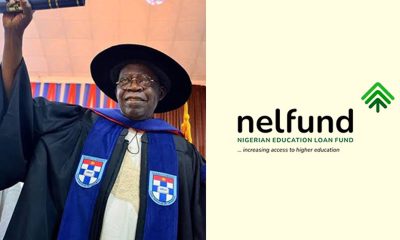
 Education3 days ago
Education3 days agoNELFUND: How schools, banks are ripping off students
-
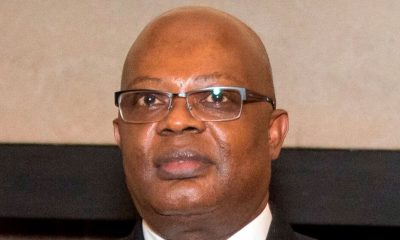
 metro2 days ago
metro2 days agoRivers administrator demands N300m refund from NBA after relocating conference
-
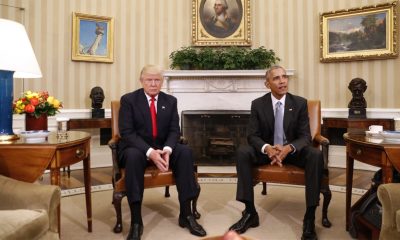
 International2 days ago
International2 days agoObama reacts as Trump freezes $2.3b Harvard University funding
-

 Politics2 days ago
Politics2 days ago2027: PDP governors reject alliance of opposition parties
-

 metro1 day ago
metro1 day agoBREAKING: Court strikes out defection suit against 27 pro-Wike Rivers lawmakers
-

 Insurance15 hours ago
Insurance15 hours agoLasaco Assurance Plc attains ISO/IEC 27001:2022 Certification for Information Security Management
-
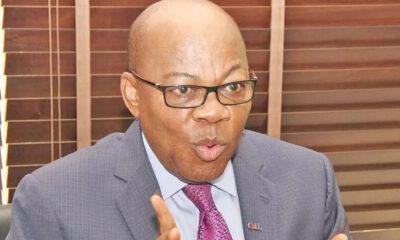
 metro1 day ago
metro1 day agoNatasha’s allegation against Akpabio has contradictions – Agbakoba









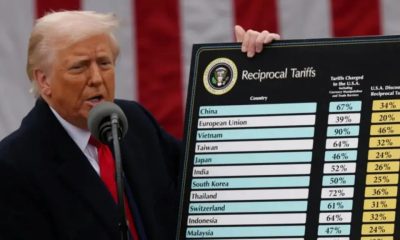


You must be logged in to post a comment Login